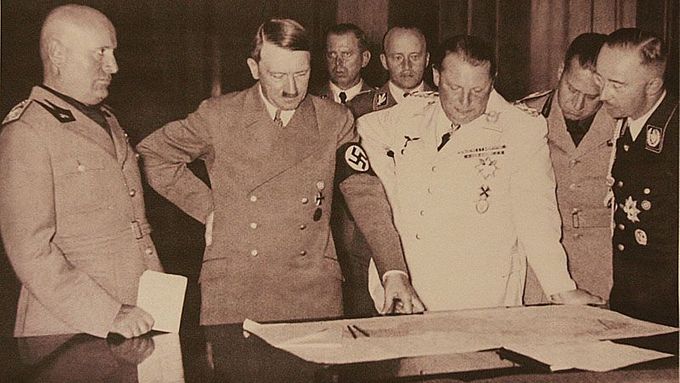Prague - The general call-to-arms order issued by the Czechoslovak government on 23 September 1938 was aimed against an imminent threat posed by Nazi Germany. Ironically, the order included tens of thousands of Czechoslovak citizens of German nationality.
Germans too were expected to join Czech and Slovak ranks to face Hitler's claim on Czechoslovakia´s Sudetenland regions bordering with Germany and Austria, inhabited by the majority of German-speaking people.
Distrusted by the general staff
Their loyalty to the Czechoslovak state was, of course, was disputed. "In some formations, more than sixty percent of Germans dodged the order," Zdenko Maršálek from the Institute of Contemporary History said to Aktuálně.cz.
And even those who did enlist were distrusted by the military staff that feared a mutiny.
Read more: WW2 tyrannicide to have a monument in Prague
That's why the military staff ordered that Germans should not be included into the special armed units that were to defend the border.
Instead, they were supposed to have been transferred to labor units. Some suggested not to give Germans any weapons.
Confusion confusion
However, the mobilization plans did not count with this situation, which promted numerous confusions. For example, bicycle or equestrian divisions had people assigned who never rode a bike or a horse.
"Only Germans who were members of the Social Democratic or Communist parties were considered reliable," Mašálek explains.
Read more: Research: Many expelled Germans were anti-fascist
It was not possible to forcibly enlist those Germans that dodged the draft. "Given the situation in the border regions, it was not possible anymore," Maršálek said. Many of them hid, others fled to the Third Reich [Germany]. "They had no reason to defend the country [Czechoslovakia]."
Munich Agreement
The call-to-arms order also expected that Czechoslovak, including Sudeten German citizens would provide the army with their belongings - for example horses or cars.
During the mobilization, it appeared that the military staff's fears were rather groundless. Although the Germans were not excited about having to enter the Czechoslovak military force, they proved to be disciplined and obeyed orders.
"Nobody knows what would happen if the first shot had been shot and a war with Germany erupted," Maršálek reminded.
But it didn't. A few days after the militarization, Hitler got what he wanted without a single shot. Representatives of Germany, Italy, France and Great Britain met in Munich on 29 September and decided that Czechoslovakia was to give up the Sudetenland region to Germany and all the inhabitants living in these regions were released from the Czechoslovak army.





